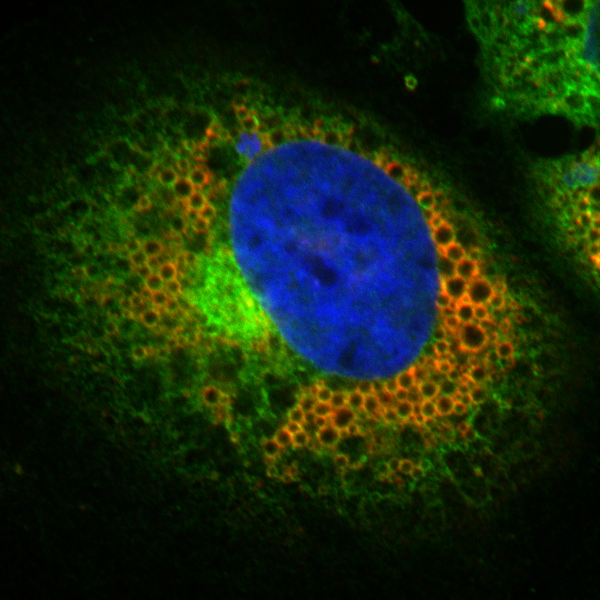Research areas:
Compartmentalization of viral infection
Viruses establish niches in the cell for their replication, depending on the cell resources they need to hijack. For instance DNA viruses typically replicate in the cell nucleus and use the host polymerase to copy their genetic material. Plus-strand RNA viruses on the opposite replicate in the cytoplasm and in association with membranes, which they reshuffle in a specialized replication organelle. In some cases, the viruses create their niche across several organelles of the cell.
Currently, our main model is hepatitis C virus (HCV), a member of the Flaviviridae family. Hepatitis C virus infects the liver and establishes chronic infections, causing serious liver damage including liver cirrhosis and liver cancer. The virus reorganizes the endoplasmic reticulum in his replication organelle but also maintains intricate interactions with the host lipid metabolism and in particular with the lipid droplets, which are hijacked as part of the viral replication/assembly niche.
Our research focuses on the interaction between the hepatitis C virus and the hepatic lipid droplets. On one hand we unravel the host cell and viral molecular machinery usurped by HCV to hijack these organelles. On the other hand, we characterize the modification of this compartment upon viral infection. We aim to extend these studies to other pathogens that also usurp the host lipid reservoir. Furthermore, we want to better understand the viral pathogenesis and also learn about the hepatic lipid metabolism in health and disease.
Compartmentalization of the intrinsic antiviral response
Antiviral innate immunity is the first line of defense raised by the cells against virus infections. Viruses have evolved mechanisms to escape the recognition by the innate immune receptors, to block the induction of the innate immune cascade or to antagonize the restriction by the antiviral effectors. Our group develops new approaches to study the spatiotemporal organization of the innate immune response to RNA virus infections.
Research team
Dr. Gabrielle Vieyres
Technical staff:
Martina Hell
Heiko Steenbock


